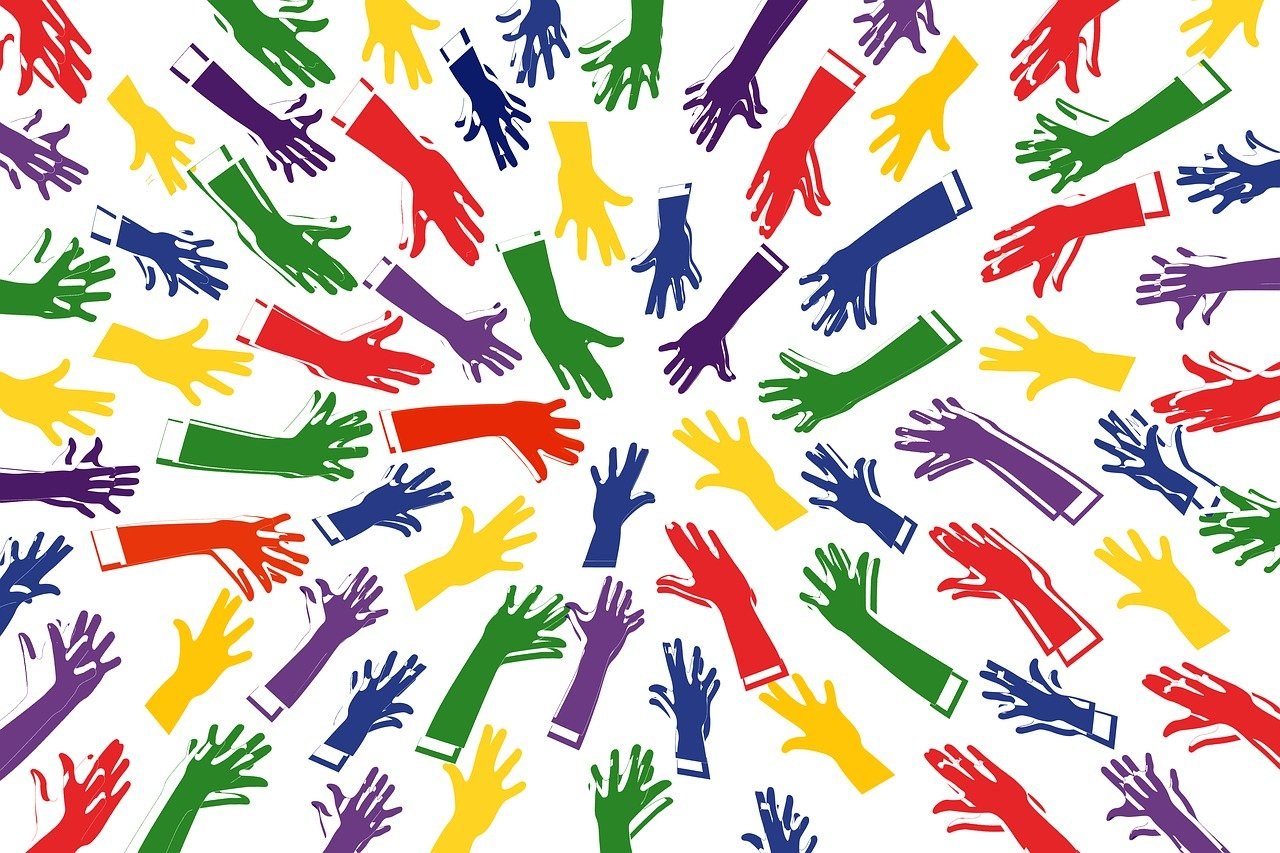Most people begin a committed relationship believing it will endure – a promise carried by routine, intimacy, and shared plans. Yet sometimes the ground shifts. You start noticing changes that do not fit the rhythm you know, and a worrying question rises: could your partner be falling in love with someone else ? Naming that fear is unsettling, but clarity is kinder than confusion. Understanding what these shifts might mean – and how to respond with steadiness – can help you safeguard your dignity, your bond, and your next steps.
Spotting the early tremors is not about snooping or rehearsing accusations. It is about tuning into patterns – changes in attention, affection, and consistency – that suggest the emotional center of gravity is moving. Sometimes the explanation is stress, health, or work. Sometimes the pattern whispers that your partner is falling in love with someone else . Either way, a mindful reading of the signs allows thoughtful action rather than reactive spirals.
What follows reframes common warning lights through a practical lens. You will also find guidance on conversation, boundaries, and care for yourself – essential tools whether the bond mends or you choose a different path. Keep your focus on behaviors, not mind reading. You cannot control another person’s feelings, but you can decide how to meet reality with calm, curiosity, and courage.

How Feelings Drift – And Why You Might Sense It First
Attraction and attachment live side by side, but they do not move at the same pace. Attachment is the slow-growing root – routine, trust, the ordinary magic of showing up. Attraction can be sudden, insistent, and blinding. When attachment loosens while attraction flares elsewhere, daily life starts to look slightly out of tune. The laughter is a shade quieter. The texts take longer. The planning stops feeling like planning; it feels like postponing. If your intuition keeps nudging that your partner might be falling in love with someone else , pay attention to the data of behavior before the drama of interpretation.
This is not a call to cynicism. It is an invitation to empathy and observation. People rarely set out to betray. They can, however, avoid discomfort by avoiding honesty – with themselves and with you. That evasiveness writes itself into habits: secrecy around devices, sudden privacy walls, defensiveness about schedules. These are not verdicts; they are clues. When many clues cluster, the likelihood grows that the person you love is falling in love with someone else .
Shifts That Often Show Up First
Not every change is a red flag. A single late reply or one low week does not confirm that your partner is falling in love with someone else . What matters is pattern – the repeated moves that rewire connection. Use the list below to notice, not to prosecute. You are looking for coherence: do several items align with what your gut is telling you?

-
Shared downtime disappears. Movie nights, lazy brunches, and the easy rituals that once felt automatic now evaporate or become solitary. When the easiest yeses in your week become reluctant maybes, energy is going elsewhere – and sometimes that “elsewhere” is the excitement of falling in love with someone else .
-
Conversations grow thin. Replies get shorter, curiosity drops, and emotional check-ins vanish. Communication is the oxygen of intimacy; when it thins out for weeks, your partner may be invested in new dialogues that feel brighter – a common sign of falling in love with someone else .
-
Privacy turns into secrecy. Everyone deserves a private inner life, but secrecy is different – quick screen flips, guarded passwords, sudden sensitivity around notifications. Secrecy often appears when someone is falling in love with someone else and wants to protect the new spark from daylight.

-
A “new friend” dominates the stories. A name keeps surfacing in casual anecdotes, and that person’s opinions seem unusually influential. Admiration is normal; giddy fascination is different. Over-focus on a fresh connection can signal that your partner is emotionally falling in love with someone else .
-
Imitation creeps in. New slang, gestures, playlists, or routines mirror the habits of that “new friend.” We copy those we feel close to; mimicry can be an unconscious breadcrumb trail pointing toward falling in love with someone else .
-
Future talk fades. Trips, holidays, or even next month’s plans get vague. When calendars used to fill themselves and now everything is “let’s see,” emotional investment is shrinking. Dodging shared horizons often accompanies falling in love with someone else .
-
Intimacy declines – or swings oddly. Touch becomes rarer or perfunctory. Sometimes the opposite happens: bursts of intensity appear as if to drown out guilt. Both patterns can accompany the internal tug-of-war that comes with falling in love with someone else .
-
Overcompensation arrives. Unexpected gifts, dramatic declarations, or unusually sweet gestures appear without context. Nice surprises are lovely; sudden excess may be a mask for conflict if someone is quietly falling in love with someone else .
-
Defensiveness becomes the default. Simple questions about schedules or plans lead to sharpness. Defensiveness protects a story that cannot yet be told – a common companion to falling in love with someone else .
-
Appearance and habits reboot. New wardrobe, new routine, new gym hours. Self-improvement is wonderful; paired with secrecy and excitability about a specific person, it may reflect the wish to impress while falling in love with someone else .
-
Routines shift without explanation. Extra late nights, unaccounted gaps, and calendar fog pile up. Life gets busy, yes – but repeated opacity is often present when someone is falling in love with someone else .
-
Emotional temperature swings. Warm one day, distant the next. Ambivalence is exhausting to receive, and it often mirrors the inner conflict of a person falling in love with someone else while avoiding a decision.
How To Respond Without Losing Yourself
When you suspect your partner is falling in love with someone else , your nervous system will want immediate certainty. Resist the rush. Choose steadiness over surveillance. The goal is to move from anxious guesswork to direct, respectful clarity – first within yourself, then in conversation.
Begin with self-check
Before you raise the topic, center yourself. Sleep, hydrate, take a walk. Write down what you have seen – behaviors, not interpretations. This prework matters because it keeps the conversation rooted in reality rather than in spiraling dread. It also protects your dignity if your partner is indeed falling in love with someone else .
Invite a calm conversation
Ask for time to talk when you both have bandwidth. Use simple, grounded language: “I care about us, and I have noticed these patterns… I feel distant and concerned.” Speak from your experience; avoid mind-reading or labels. Curiosity opens doors; accusations slam them. If the truth is that your partner is falling in love with someone else , a steady presence gives them the best chance to be honest.
Stay with specifics
List the concrete changes that have worried you – the missed plans, the secrecy, the out-of-character irritability. Precision defuses the “you are overreacting” narrative. If your partner is not falling in love with someone else , specificity also helps you both spot other causes such as burnout or grief.
Consider professional support
A neutral space helps when emotions run high. Couples counseling is not a verdict; it is a container. A skilled therapist can slow down the loop, translate defenses, and highlight patterns. If someone is falling in love with someone else , guidance can surface the reality and map choices with less harm. If not, therapy strengthens communication and repair.
Reinforce boundaries
Boundaries are not punishments; they are clarity about what you can live with. You might say that secrecy around devices is not acceptable, or that you will not make long-term plans while trust is uncertain. Boundaries are especially vital if your partner continues contact with the person they are falling in love with someone else over. Clear agreements protect both people from the fog of ambiguity.
Rebuild, if both are willing
Healing requires truth, remorse, and consistent follow-through. Transparency about schedules, open access to communication, renewed rituals, and regular check-ins all help. If there was emotional entanglement – if your partner was falling in love with someone else – closing that chapter completely is non-negotiable for repair. Patience matters; so do measurable changes.
Care for your own life
Do not make the crisis your whole identity. Keep your friendships, your routines, your appointments. Eat well, move your body, rest. Seek spaces where you are not the one who is “figuring it out.” If your partner is falling in love with someone else , tending your own wholeness ensures you can choose – to stay and rebuild, or to leave – from strength.
Know when clarity equals closure
Sometimes the bravest act is to end what has already ended in spirit. If honesty remains missing, if boundaries are ignored, or if the connection cannot be re-rooted, you are allowed to step away. Paradoxically, the same steadiness that would be required to repair is the steadiness that carries you out when the evidence shows that your partner is still falling in love with someone else .
Practical Road Map – Conversations and Actions
Use this action list as a calm sequence. You are not trying to catch someone; you are trying to learn the truth and act with integrity.
-
Gather your notes. Write down the observable shifts you have seen over several weeks. Keep dates and examples. This protects the dialogue from becoming a debate about memory – crucial if your partner denies or minimizes while falling in love with someone else .
-
Pick a good moment. Choose a low-stress window with no looming deadlines. Emotional availability matters when discussing whether someone is falling in love with someone else .
-
Speak plainly. Use “I” statements, ask open questions, and pause. Silence can make space for truth that defensiveness would otherwise smother.
-
Request clarity, not performance. You do not need dramatic pledges. You need realistic information – what is happening, with whom, and what your partner wants now.
-
State your lines. Explain what must change for trust to regrow. If continued contact with the person they are falling in love with someone else is unavoidable due to work or community, specify structures that make it truly minimal and transparent.
-
Set a review date. Agree to revisit the conversation after a defined period. Progress looks like openness, consistency, and renewed presence – not just promises.
-
Seek support. Confide in one or two grounded friends or a counselor. Choose listeners who will protect your privacy and reflect you back to yourself, not inflame the situation.
-
Watch behavior over words. If actions align with repair, you will feel the difference. If not, accept the message. Someone who is actively falling in love with someone else will show it in choices, not just in slips of language.
-
Do not bargain against your self-respect. Your worth is not a negotiation. If the conditions you need for emotional safety are mocked or ignored, step back.
-
Make a plan for either outcome. If you stay, outline how reconnection will look – shared routines, therapy, weekly check-ins. If you leave, organize logistics with care: finances, housing, and community support. Calm planning is a gift to your future self whether or not your partner is falling in love with someone else .
-
Reclaim your story. You are more than the worst week of your relationship. Give yourself permission to grieve and to grow. The goal is not to prove you were right about someone falling in love with someone else ; the goal is to live aligned with your values.
Reading the Whole Picture
One sign is rarely decisive; clusters tell the truth. If you see three or four of the shifts described, ask questions. If you see many of them together and they persist despite honest conversations, you are likely confronting what you feared – your partner is falling in love with someone else . That clarity is painful, but it is also an anchor. With it, you can decide how to move – toward repair with real accountability, or toward a future apart where both of you have room to be honest.
Trust yourself. Intuition is not evidence, but it is often the first signal that evidence exists. Let your observations lead to conversations; let conversations lead to choices. Whether you rebuild or release, choose actions that protect your peace and express your deepest dignity. In love, as in life, the bravest path is the truest one – even when it shakes.
If you take only one thought with you, let it be this: you do not have to live on a diet of doubt. If the relationship can become solid again, it will be because truth was named and care was renewed. If instead your partner keeps falling in love with someone else – or lingering at the edge of that decision – you are free to chart a course that honors your heart. Steadiness, honesty, and self-respect are not just strategies; they are the way you carry yourself, come what may.